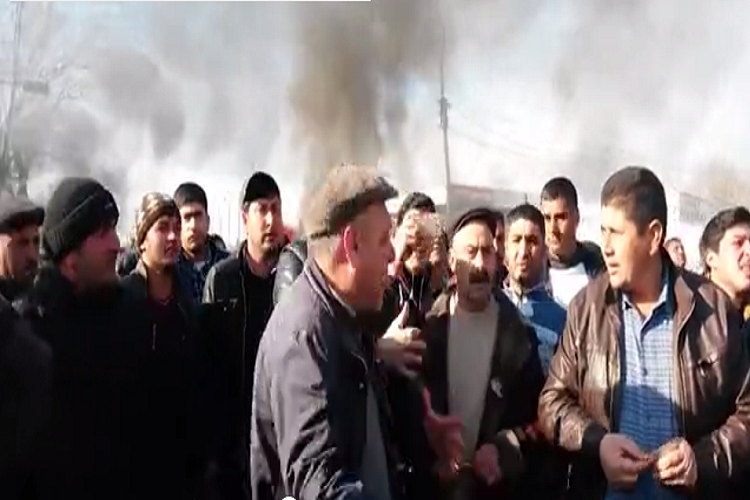Military troops called in to control protests in Azerbaijan
Baku, Azerbaijan: Military troops called in to control protests in Azerbaijan but protests continued across Azerbaijan against massive price hikes and withdrawal of subsidies from food items. Protests started on Thursday despite heavy deployment of Military units in Siyazan and other troubled regions.
According to Dispatch News Desk (DND) news agency, riots broke out on Thursday-Friday night across Azerbaijan and thousands of young protesters were marking on streets in frustration over joblessness, price hikes, crumbling economy in the oil-rich Caucasus country.
Azerbaijan government refused to comment over deployment of Military troops but local people posted several photos of deployment of troops on social media and US funded Radio Free Europe also reported that troops have taken positions. Several hundreds arrest were also report through unconfirmed sources.
According to details, protesters marched across streets in different districts of Fizuli, Aqsu, Aqcabardi, Siyazan, and Lankaran.
The economy of Azerbaijan is facing stress since December 21 when Federal Bank took away clamp over decaying currency conversion and national currency —the manta faced devaluation over 47% in two proceeding weeks. Azerbaijan has a bad record of Human Rights therefore this country is also not receiving western tourists and businesses and its exports are crumbling and sending shock waves through the economy.
According to US-funded Radio Free Europe, police detained several protesters in Lankaran district including a local chairman of the opposition Popular Front Party (AXCP), Nazim Hasanli, and the chairman of the local branch of the opposition Musavat party, Iman Aliyev. Both men were reportedly found guilty of taking part in an unsanctioned protest and sentenced to one month in jail. Radio said that Hasanli and Aliyev had pleaded their innocence, saying they had nothing to do with the rallies.
Rasim Novruzov, a deputy head of the district administration in Aqsu, said to Radio Free Europe that the events in his district could not be described as protests, adding that local authorities had talked to the demonstrators and agreed to tackle the issue of the high price of flour.

